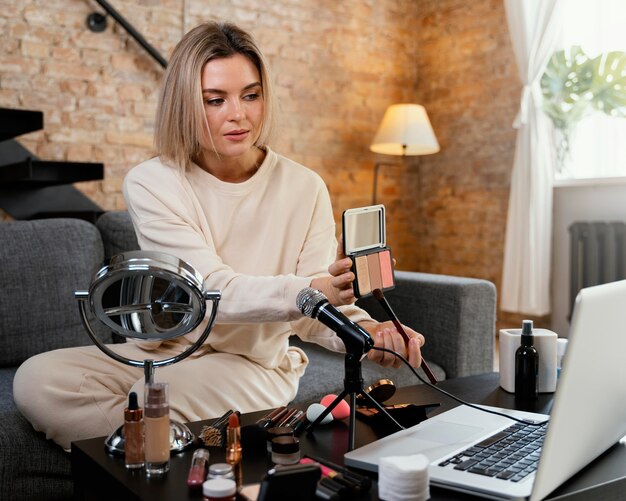Influencers have increasingly become a huge part of marketing, and brands are consistently relying heavily on these influencers to promote their products.
However, I have begun noticing that influencers are losing their credibility.
As of 2024, a study showed that only nine percent of consumers are genuinely swayed by influencers.
Originally, the reason influencers went viral and were trusted was because of their authenticity. They were often genuine and only promoted products that they liked themselves.
Their relatability was what drew followers in, and we saw them as trusted friends instead of out of reach celebrities.
But recently we have seen a shift in the behavior of these influencers. The line between authenticity and advertising to make profit has become blurred.
Most influencers have begun to act more like celebrities than like friends we can rely on.
As viewers recognize this problem, we have also grown increasingly skeptical and cautious when watching influencers. With the increased amount of advertising and earning commission, influencers are more like walking advertisements or billboards for certain brands rather than the relatable people they used to be.
One huge thing that significantly raises skepticism in the audience and lowers credibility of influencers is overexposure. This happens when influencers are sponsored by the brand and they provide a script. When the brand buys out multiple influencers, it is possible that they are all given the same script. Seeing different influencers saying the exact same things about a product or brand can undeniably raise suspicion in viewers.
The question of whether the influencer actually likes the product or was bought by the company is a significant question plaguing all of viewers’ minds when we see these ads.
Another important factor to think of is the skyrocket of the number of influencers.
With so many influencers trying to make it big while attempting to seem authentic and also gain a profit, it makes it even harder to distinguish whether or not a video was made for the purpose of making money or not.
Another thing that diminishes influencer’s credibility is their wealth. Sometimes, when an influencer makes it big, they also rise in terms of wealth. This can lead viewers to think that their favorite influencers are no longer someone they can relate to.
In conclusion, it is clear to see that influencers are slowly losing their influence, with consumers relying more on online reviews and real life friends rather than an influencer.
However, this is not to say that influencers have completely lost their credibility. There are a handful of genuine, authentic influencers that do not take brand deals for profit, and only promote the products they truly like.
The popular trend of de-influencing has also risen, a stark contrast with profit based influencing. And viewers tend to perceive de-influencing videos with much more credibility than influencing videos, because they are not being paid.
But the question is, how do we differentiate between those influencers and the influencers that are simply drawn to the profit?

